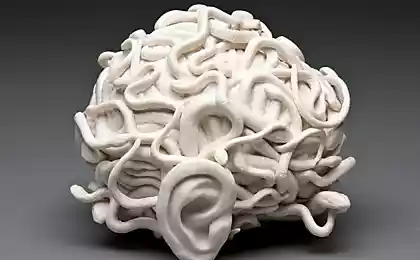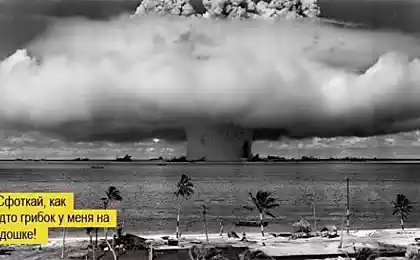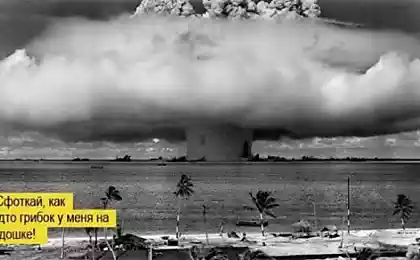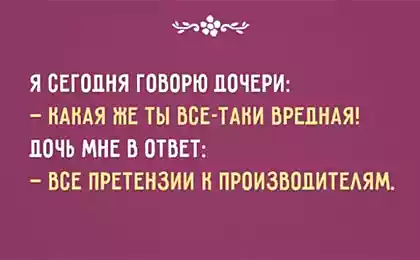923
Shinsen Yang: Today's enlightenment is tomorrow's mistake
Har-Prakash Hals: You say that enlightenment is a precious stone with many facets. In this case, what enlightenment do you like?
Shinsen Yang: I usually rely on my Buddhist education. Theravada Buddhism suggests that with the initial experience of enlightenment fall away, leaving three things. It is very important that it is formulated as a process of elimination; something that is no longer, and not acquired. You don't get something strange. So enlightenment is not one thing you can get. And then meditation as the path to enlightenment can be described as preparing the ground in order that the Nature/Grace has removed from us everything that needs to fall.
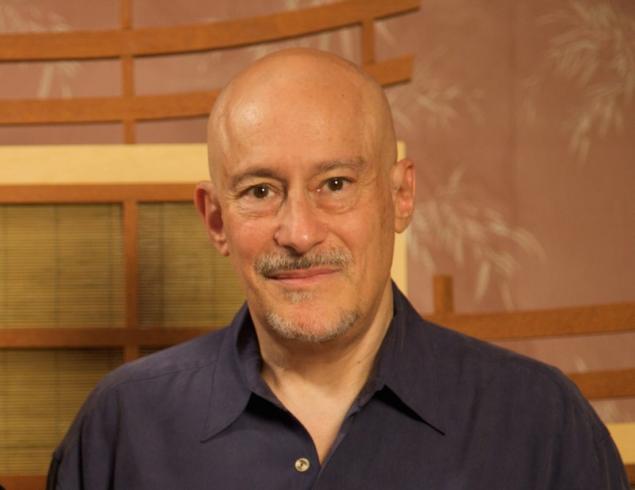
These three things go, in the Pali language are called Sacca-ditthi, vicikiccha of silabbata of paramasa. The most important of them is Sakka-ditthi. It's the perception of that inside of us there is a certain thing that a certain entity called "I". Here it disappears, goes away.
HPH: When you say "the perception that within us there is a certain thing that a certain entity called "I"" goes, you mean that it completely disappears?
SHYA: the Difficulty here is the word "perception". In the original the word is used ditthi in the language of Pali, or drishti in Sanskrit, which literally means "view" (what is seen). In this context, ditthi or drishti means a fundamental paradigm, the concept of something. So the perception, it may not be the best term. Rather, disappears the fundamental belief that we have a kind of thing that we nazyvaemoi. According to traditional formulations, after his enlightenment, this belief has never returned. However, if by "perception of self" we mean short-term spontaneous contact with the frame itself-the concept, that happens to enlightened people over and over again, although at less as enlightenment deepens and Matures.
So, according to traditional formulations, you pass sequentially through four stages of enlightenment, starting from when you first own experience realize that there is no "thing" in me or others, which could be called "I", and until the moment when this knowledge is implemented completely.
As you move through these stages, you fall into a snare himself-the concept of millions of times as other people, in some sense, and yet a little different from other people. Because even if you find yourself in a snare "I", you clearly know what you was instantly captured, it is not something real.
So if by "ourselves" we mean "the perception of me such things as "I"," it is gone forever. However, if by "me" we mean a) some image, thought or feeling arising in the mind, and b) the insufficient level of clarity and rivestnot about these phenomena at the time of their occurrence, Yes, even to a certain extent, the enlightened man for a while will be in the power of yourself-concept. And this, of course, will occur again and again.
I like to share subjective experiences of the person into three sensory elements: feelings (bodily sensations of emotional type), images (visual thinking) and thoughts (auditory thinking). All of these sensory elements continue to arise in the mind of the enlightened man, until his death. And although sometimes the enlightened man suddenly appeared capture feelings-images-thoughts, although the enlightened person is covered by them, a part of the consciousness still knows that in all this there is no such thing as "I". That knowledge never goes away. Frequency, duration and intensity of identification with images, thoughts and feelings gradually decreases as you come into greater and more profound stage of enlightenment. There are exceptions, but usually takes months and years to come, or rather — decades in order to learn how not to fall into the trap of feelings-images-thoughts in those moments when they arise. So while the enlightened man will encounter times of "neprovidnost", but these moments in time happen less frequently and be shorter and less intense.
As long as you have so much clarity and rivestnot that feelings-images-thoughts can't catch you by surprise, even in those moments when they arise, you can survive the experience of "no self". Moreover, with the deepening of the process of enlightenment you may find that you experience more and longer periods during which little or no there is no any subjective activity.
Thus, the enlightened people experience "no self" in three different ways. In the first case, the subjective elements that make up "me" simply does not arise. The space disappears subjective. In the second case arise and emotions in the body, and visual and auditory thinking (and sometimes even very intensively), but you are not involved because they did not go awry in a tangle of emotions and perceived separately. In the third case, you are captured by all these subjective elements, but some part of you still knows that this experience is an experience of a wave by the name body-mind, and not the particle "I". Summing up, disappears with the enlightenment point of view or self-perception of some "thing" inside the process of body-mind.
In General, the main characteristic of enlightenment according to the earliest Buddhist traditions, is the ability to see through sakkaya-ditthi, "I-like-the-thing." But the tradition also speaks of two other additional factors.
First, it is vicikiccha or a fundamental doubt or confusion. After the experience of enlightenment you begin to see how most people just don't have a clue about what's going on. It sounds elitists, but you really start to see how people are mistaken about how their sense of self, and what is the nature of suffering. For you, a large part of this fundamental error goes away.
Secondly, it is silabbata of paramasa. "Force" means the ethics and morality. "Bata" means religious rules and rituals. "Paramasa" has no direct English translation, but in the context of this phrase it means "to ascribe to something more than it really is." If you ascribe more than what he's capable of, it's paramasa. So silabbata of paramasa means to rely on morality and religious rules and rituals more than they should.
This can be understood as a mechanism of self-restraint happening to people everywhere, in every part of the world. Spiritual development of one person can evolve to ethics and morality, and that's fine, but there it stops. Or spiritual development of another person can include regular trips to the Church and participation in various rites and ceremonies, adoption and observance of vows. And again, this in itself is fine. But before developing this point, one can get stuck in all of this, thinking: "I'm a good person and go to Church, so that everything is in order." To believe that spirituality is limited to this — it is a religious dead end.
With enlightenment one begins to see very clearly that although ethics and religious vows and rituals have meaning, and can certainly be important and relevant, there are other aspects of the spiritual path, to which ethics and the vows themselves do not get. Something else is possible and even necessary for true spiritual maturity. And it's another to see through the concept of sakkaya-ditthi.
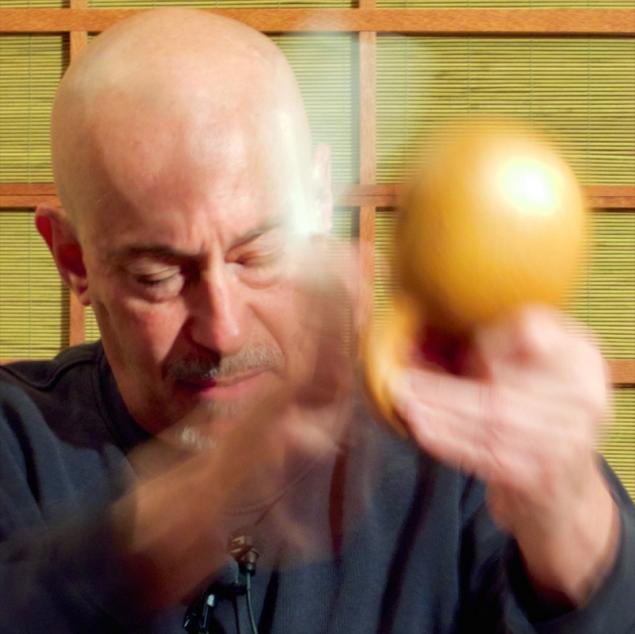
We talk all the time about "I" like is the subject, a noun, a thing inside of us. The conventions of language (like the opposition of subject and object, and so forth) constantly reinforce this perception, that there is a constant and "dense" thing called "I" which at a fundamental level is separated from the others. And the feeling that there is a dense particle or essence called "I", goes together with enlightenment. Your fundamental misconception about how things work out. Reliance on ethics, vows and rituals goes. This is the traditional wording in Buddhism, what are three things that go with enlightenment.
HPH: by enlightenment you mean the first stage of enlightenment, right?
SHYA: Yes, all right. In the traditional Buddhist formulation (early and southern Buddhism — approx. lane) there are four stages of enlightenment. The first stage, about which you just discussed, is called "entering the stream", or sotapanna. Then, "returning once" (sakadagami), "not returning" (anagami) and "worthy" (the Arahant).
A process that begins with "entering the stream", gradually growing and deepening, and more and more has an effect on your entire being.
You begin to see that your subjective experience is simply out of feelings and sensations, plus images, plus thoughts. When they are woven together, this creates the illusion of "I" as a thing. And when they first be untangled, unwound with sufficient clarity and equanimity, the illusion passes. After that, they may be confused again and again, and you may at some time again become involved in them, but some part of you always knows that there is no "thing" there.
Each of us during the day there are brief moments, when the feelings, images and thoughts do not arise. In these moments there is no self-awareness "I". The only difference between the enlightened man and the unenlightened is that when during the day there are moments of lack of feelings-images-thoughts, enlightened to notice these moments and know that this experience is a clear experience of the lack of "I". Unenlightened people have similar experiences hundreds of times a day when their attention for some time is sucked in by external sounds or physical sensations. And for a moment, then, that there is a world of sensations, visual images and sounds. And in this moment any "I" within them is lost, but they can't see. But what they don't know it, doesn't mean it didn't happen!
The enlightened man knows that each of us is constantly experiencing short moments of enlightenment throughout the day. So, paradoxically, there is nothing special to be enlightened. In the enlightenment already inherent pill against the disease "I am special". Enlightenment allows you to see and not just believe that each of us is enlightened. You can say, "Yes, but the difference is that they do not recognize". Well, this is also true, and yet the fact that they're enlightened — is absolutely undeniable. From this perspective, to divide people into enlightened and unenlightened — is completely false.
As I said, the most important of the three things that go [with the first stage of enlightenment], is Sacha-ditthi. In a broad sense, this is true for experiences of enlightenment in all traditions of the world. Regardless of what tradition has been practicing man, his perception of samoseli, "self-astnosti" will change with the deepening of practice.
A characteristic feature of the enlightenment, regardless of how it is formulated in the different traditions, whether it be Christianity, Buddhism, Islam, Hinduism, Sikhism, shamanism or atheism is that there is a shift in the perception of self-astnosti. However, depending on the cultural code of the person and his way of interpreting his experiences, the language description of the implementation of this shift can be very different.
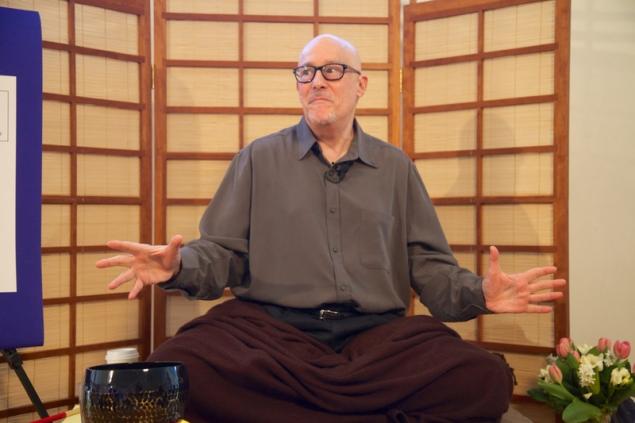
Buddhists formulate this shift in the perception of self-astnosti like "actually no "I,"". In many branches of Hinduism the very same experience is described as discovering the True self, suggesting the existence of some entity: the Witness, the True Observer, Pure Consciousness, and so on. If only based on the language of these formulations, one may get the impression that Buddhists and Hindus refer to different and even opposite, experiences.
The situation becomes even more confusing if you read classical texts in the original language in which they were written. Buddhists say that to clear up — then to discover that actually there is no Atma, which is interpreted as I-as-thing. Most Hindu teachers, however, say that to clear up means to detect the Atma, which is interpreted as the True Perceiver, or the Nature of consciousness in a sense beyond all phenomena. It may give the impression that they are talking about completely different experiences but as far as I can tell, they use different descriptions for the same experience.
If you happen to meet the teachers of Hindu and Buddhist masters and to communicate with them, you will notice the similar body language and similar energy. It seems that in both cases there was a similar transformation of human nature, but their stories about this experience seemed to contradict each other. For example, the Christian mystics often speak of this as a merger of the soul with God. If only based on how they talk about it, it may give the impression that their experience has nothing to do with the experiences of practitioners of Buddhism or Hinduism. But I see it as different facets of a single process of a radical transformation of the person. For example, Saint Teresa of Avila describes that Union with God "is like water with water," and adds: "Self-forgetting so totally that it seems as if the soul ceases to exist." You know, when the Roman Catholic mystic of the sixteenth century, says that "when you merge with the Lord, it seems that the soul no longer exists", is an extremely powerful statement.
Description a contemplative spiritual path, which has offered St. Teresa, not just passed the test for compliance with Catholic religious norm, but he has become such the norm! In the Roman Catholic tradition, its description has become a classic map of the meditative and contemplative way. In General, we see that the Buddhist model is the lack of "I" is very similar to what SV says. Teresa.
So if you want to find signs of enlightenment in many spiritual traditions around the world, looking for signs of the radical and permanent transformation of self-perception. Somehow, this experience shakes up the usual identification so that you begin to see that there is no such thing as "I", or realize yourself as Pure Consciousness, different from our body and mind, or merge with the Source, and so on.
For example, the wording of the enlightenment in Judaism involves simultaneously and merging with the Source (Dvekut), and the destruction of reality, "I" (bitul ha-Yesh). It is said that when a person has experienced a reality beyond reality "I", he begins to see how God continuously moment by moment out of nothing creates the "I" and the surrounding (briya Yesh me-Ayn).
Of course, your sense of "I" can affect other things, but they are not similar to the experience of enlightenment. Kind of crazy when you think you are Napoleon or Jesus. Or when you become a psychic for some time dissociirovati from "I" until after you say the gods, like in Caribbean voodoo. But the enlightenment affect you loosing functionally changing your identity; it's not like crazy or what is going on with mediums.
All of these things are important to consider when you hear my words, that enlightenment is a precious stone with many facets. One teacher, as a rule, cannot cover all these things, is very difficult. Each teacher will highlight just some of the faces, because that's his experience, or because it responds to what you say or don't say students. When the teacher talks about one or more faces, losing the rest (implying, but deep in them without sinking), it can be very confused.
Therefore it is important to emphasize the multiplicity of facets of the enlightenment that there is frequently a lack of understanding. Most likely, when teacher transmit the knowledge of the enlightenment, they talk not about all its facets.
When I first met my teacher Sasaki Roshi he was already a grandmaster teacher of teachers. Now a hundred years old, so we met when he was over seventy. And for more than two decades, what I learn from him, I watched how to change his language. So even if you are already a teacher of teachers, the development and disclosure of new facets of enlightenment continues.
The person undergoing the enlightenment, continues to develop normally with time. One of my favorite quotes belongs Zheng Y-guano, teacher, with whom I lived in Taiwan. He said: "Today's enlightenment is tomorrow's mistake." That means: do not cling to what you know and feel the enlightenment, because other facets of continued development.
HPH: In previous your retreat here you have mentioned that many of your students are much more enlightened than they believe. Having worked in this field for more than thirty years, can you name something in common in the experiences of enlightenment from your students, as well as the fact that they are different. And how their experiences relate to those, for example, that described in "Three pillars of Zen" by Philip Kapla, or "Visuddhimagga" Buddhaghosa? And how prevalent a sharp, sudden enlightenment, in comparison with a more gradual and smooth implementation process of the increasing clearness?
WN: What about sudden insights, such as those described in the books — this definitely happened with some of my students. When this happens it is really like described in the books. How often? Don't know, I don't keep count, but probably several such cases a year.
When a man comes to me after this insight, it felt right. They come into the room, and before they finished the first sentence, I already know what they will say. (Laughing.)
You remember, right? As this has happened to you... When it occurs so suddenly and sharply, you are in seventh heaven and, like the first experience of love, you'll never be the same.
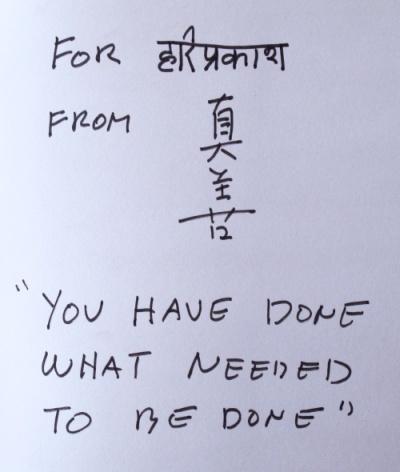
For har Prakash (Sanskrit) from Sinsen (in Japanese). You did what needed to be done.
However, for most students who I have studied, this is not so. Not sudden. For most people it looks like work on a gradual cleansing from all that stands in the way of enlightenment. And it can be so gradually and smoothly that people don't even notice it.
Remember, I said earlier that it is extremely important that in traditional Buddhism, this is formulated as the process of gradual liberation from different things, and not as a process of acquiring something new? So, in most cases, it takes years and even decades to work through greed, aversion and unconsciousness — of basic "obscurations" (mula klesha). And because it happens gradually, people may not realize how much they have changed. As soon as the mule flares worked, people are less likely to experience a restless dissatisfaction, and their experiences with reduced fundamental gap between internal and external. Because it happens gradually, people have time to acclimate the changes. And because of this acclimatization, a person may not realize how far he's come. Most often, however, people are beginning to realize that when life throws them a nasty surprise in the form of hardship, bereavement, serious illnesses like cancer, serious injury or other threat to life. Then they can see how everything is beginning to go crazy about this, and how much less it bothers them. Then the contrast becomes suddenly very obvious. That's when they notice.
I love that connection to tell a story about samurai. This samurai went to a Zen monastery on a mountain and lived there for many years. But despite many years of practice, he seemed nothing gained. Then he turned to the teacher: "I Think I need to go. I practice, but nothing happens." "Okay. Go for it," the teacher agreed.
When he descended from the mountain, he met a samurai, one of his comrades in a past life. Seeing our hero in the old monastic robe, he began to revile him, because, from the point of view of the samurai, the Buddhist monk does not differ much from poor beggars: "Are you so lost the dignity that joined this smelly?", then spit on him. You must understand that in those days, the samurai were an incredibly proud people. Any insult to their personal dignity meant a fight to the death. But our monk just calmly walked on and only after walking some distance, he realized what had happened: he just didn't want to kill the samurai, but not even angry!
The story ends with the fact that he turned around and bowed three times mountain on which to practice. He bowed in recognition of all that he had to work there. He realized that he didn't need to kill those who insult his honor. He discovered how much he has changed as a person.
Of course, this happens not only with the samurai in Japan in the 16th century. The same applies to the Americans of the 21st century. Perhaps you have been practicing 10, 20, 30 years, and it seems that nothing really has changed. And then there is something big and you realize how your perception is different from ordinary people, who do not do spiritual practice.
I can give an example that happened just a couple of weeks ago. One of my students that engaged and involved in the retreats for quite some time, needed to undergo a biopsy to determine the presence of serious forms of cancer. Waiting for the results of the analysis, this person noticed that it is not worried. The results of the biopsy were negative. What happened to absolutely avoid unnecessary suffering, was the effect of many years of meditation practice.
In my experience, a gradual awakening is occurring to many more people, but the sudden happens, no doubt. Nobody keeps accurate statistics. I think it will do, when Buddhism become truly "Western". In business, we will have statistics and detailed information about which practices work, which don't work, and what really happens to people. Now none of the teachers there is on this occasion something bigger than just individual stories.
HPH: That is, that no tables in Excel?
WN: Yes, but they will, and they should be. This should not be an impression of the teachers about the situation. We should carefully collect objective information to clearly see what actually works and what doesn't. And that's the way the modern scientific perspective can help to improve the teaching of meditation.
Access to the enlightened teacher is very important in cases of sudden enlightenment. If you had such an experience of sudden enlightenment, it is extremely helpful to talk with someone who understands exactly what happened.
HPH: OH yeah! (Laughing.)
SHYA: So you can save a lot of time. Interestingly, in the Rinzai Zen tradition you can't become a Roshi (teacher), until you have some experience of enlightenment. Such a quality control system teachers in this tradition. In the tradition of Vipassana, anyone can be a teacher. People can, literally, walk a few weekends and start to teach the practice of mindfulness. And that's good. Why not? But if a student happens to a classical experience of enlightenment. (Laughs), such teachers of mindfulness, personal practice experience in two weekends probably wouldn't know what to tell him. They literally will not understand what they says a student. I hope they will understand enough to direct the student to a knowledgeable person. So anyone can teach the practices of mindfulness, but not everyone knows what to say to a man who'd had a sudden powerful experience of enlightenment.
An interesting feature of sudden powerful episodes of enlightenment is that in some cases they do not involve practice. They happen to people spontaneously, and these people even more in need of someone who could explain to them what happened. They should know that they are not alone in these experiences, it was with them alone. After all, they may not even realize that their experience is a universal phenomenon familiar to many people in different parts of the world, in many cultures, through the prism of many paradigms, and at all times.
And only requires about an hour of time to tell the person the important and essential things you need to know about the experience of enlightenment, and that it is necessary in this case to do, regardless of whether it is enlightenment sudden or comes as a result of practice. And if they listen carefully and deeply understand what the teacher says, all will be well.
If no you will not tell about it, you may be confused and not know what to do. In the worst case, you become ignorant and stupid enlightened, even if it sounds like an oxymoron. How can that be, if enlightenment is the ability to see that there is no "I"? For example, if there is no one to tell you that your experience of enlightenment is only the beginning. The window barely opened, and you have the path in a few decades to deepen and integrate the experience. If no you will not indicate, you may feel that you are more enlightened than you really are. That's when you can be an ignorant person who has no "I".
HPH: Well, I pointed you to it in five words: "You can still screw it up"!
(Laughing.)
WN: Oh, you had to use six. I forgot the word "big"!
(Laughing.)
It's true, you'll inevitably still screw up big.
HPH: I Certainly have, more than once.
SHYA: do Not-I make mistakes, just as "I". But it's learning.
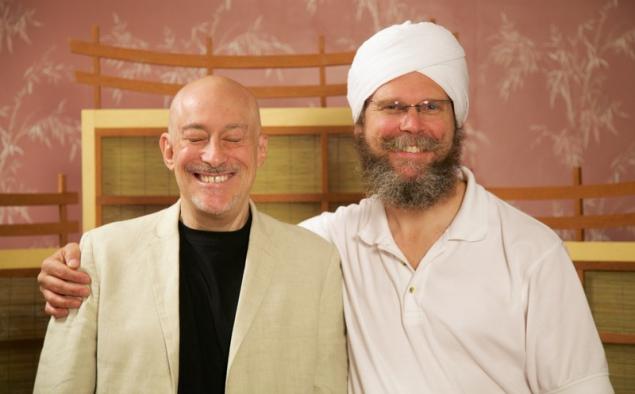
HPH: how do you see your role in the relationship teacher-student before, during, and after student experiences of enlightenment?
WN: IN any case, sudden or gradual?
HPH: IN both.
SHYA: I consider myself a coach. A coach can show you what and how to do, can give advice. Well, you know, you have to keep this ball a little differently. You turn up a few knees high while running. And things like that. The coach knows many concrete and specific details and aspects of quality work. Likewise, I know a lot of little details that one has to learn to be strong, "psihologom athlete". Besides, I need to know how to interpret what was said. If you come to me and ask, "What does that mean? Why is this happening?", I should be able to give a clear and reasoned response.
The coach listens carefully. Some teachers make the same mistake that although they share a really important experience, they say something like: "Yes, this is normal, just keep watching the breath" because they do not recognize the importance of what they are told. All they can do is say, "Okay, just keep practicing". But sometimes does not make sense to say "just keep practicing"; sometimes you need to say: "you appear discriminating wisdom, follow her!" If you are unable to recognize those moments when the Nature/Grace opens window of opportunities for your learner, you miss this moment and make a mistake.
The coach also inspires and encourages you. The inspiration has two aspects. One of them superficial, the other deep. Outward enthusiasm is actually the words that hears a student. Deep is my deep belief that any person is able to achieve a classic of enlightenment, whether sudden or gradual implementation.
In summary, my role as teacher is to assist the student two services: enthusiasm and instruction. Enthusiasm stems from my deep belief that anyone can succeed on the path of meditation, he estli:
1. Understand the concepts and terminology required to practice.
2. Knows at least one quality meditation technique and knows how to do it.
3. Ready to apply this technique for the routine study of any situation of our daily life.
4. Included in the rhythm of daily practice, combining it with periodic participation in intensive retreats.
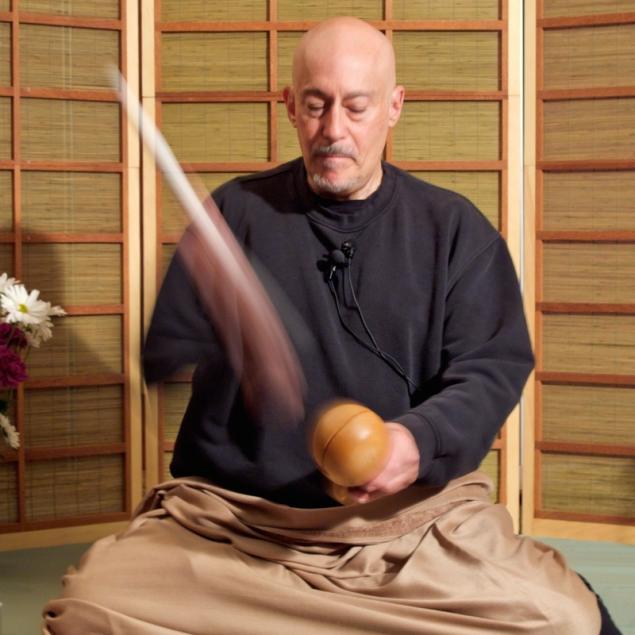
The purpose of coaching is to help students to embody these four elements in life. But the main thing beyond this, it is a Nature/Grace will do for us. These four elements create the conditions necessary to start the natural process, which is just waiting in the wings — enlightenment.
I can't guarantee that it's sure to be a sudden Epiphany. But if the people embody in their lives and support these four elements, there is a very high probability that the results will not disappoint.
HPH: that Is true.
SHYA: So my role as teacher, until the enlightenment of a disciple (assuming that enlightenment can be "spread out" in a few decades), consists of three aspects:
First, this is a huge pantry of various fine reviews and tips is a whole separate skill. I can fix that, or, you should treat it a certain way, this is similar, but not exactly, and so on. That is, there are a lot of specific amendments, which I do. Then, it is the ability to clearly answer questions. "What does that mean? Why do I feel?" Finally, the enthusiasm on the surface and from depth. Here's how I see my role.
HPH: Yes, I understand.
WN: After the first experience of awakening, people often need to hear that they are not lying to yourself. Often they can't believe it's really happening to them.
"Seriously, this really happened to me? Is that really the same experience that is described in the books about enlightenment?"
"And you seem to like?" — I ask.
"Yes, very likely"
"Well then, what's the matter?!"
(Laughing.)
I usually say something like "You read those books, now you will live this movie", or "Welcome to my world".
Then they say, "But it can't be that simple?" To which I usually respond: "isn't that usually I write all those books: "the same can Not be so simple?""
(Laughing.)
HPH: AND often there is such distrust?
SHYA: Yes, quite often. My first big break in the practice occurred Saturday night, and I thought, remember: "Tomorrow morning I will Wake up, and as it's already faded. It's probably something like "izmeneny" drug, or something like that." But when I woke up the next morning: "No! It's not gone!"
(Laughing.)
And this condition — it never left.
HPH: Yes, I remember your story.
SHYA: So, good or bad, but unlike many other teachers, I can talk about all this openly.
Going back to your question, I most often first with a smile, reassuring the people that received this initial experience, thus: "Yes, you, your old "little me" really gets it now, at least, the taste of THE PRESENT," and then I point out that "it really really happens, but you are only at the beginning of this process. You can still screw it up, you still have to do it multiple times."
(Laughing.)
HPH: big!
WN: Exactly! So you should continue to work and grow with these experiences. Will open more facets, more sides. This process will open up further and further. You need to continue to comply with the formal practice of daily meditation. You need to continue to communicate with someone like me — not necessarily with me but with someone as confident and competent, who can guide you through this process through the years and decades to come. That is why I myself, even after all these years, there is a teacher to whom I still turn for advice and who experience far superior to me.
I want the people receiving the first experience of enlightenment, has always maintained a contact with someone whose experience is far superior to them. So they are not folded with the right direct, and will not consider themselves more enlightened than it actually is.
HPH: quality Control.
WN: Yes. I want to be sure that these people understand that they definitely need to maintain regular connection with someone who can give them instructions to practice and guide them on the right path. This is the main. In fact, you I about said, when you were going through your initial period of enlightenment?
HPH: Yes, again and again.
WN: yeah. I have a relatively few standard phrases that I repeat to people, and this job is very important. Anyone can teach techniques and practices that lead people to enlightenment, but not everyone can confidently hold people through the initial experience of enlightenment for one hour. Of course, there are many people, but still less than the first. With me it happened after my initial experience. I was not familiar with Sasaki Roshi for that moment but I knew another teacher in Los Angeles. Not that I was familiar with him, but I knew about it and understood that I need to talk to someone about what I experienced.
Well, here I am, a guy from the street, and there was this Zen master, and I tell him: "I think I had an enlightenment." On the surface it sounded like a pretty arrogant and presumptuous statement, but remember how I said above that the teacher can feel it? So he didn't blink, didn't say, "dude, you're just full of shit". His job is to be able to distinguish when the enlightenment really happened, and when not. And when the enlightenment really happened, to confirm it, and to inspire for future work. He told me: "Yes, you had a good experience, this really is it. Now all you have to do this and this and that and that and that..."
The same thing that I told you. So I'm just passing it on.
April 28, 2008, the center "Mount Carmel", Niagara falls.
Interview translated from the consent of the authors specially for the magazine "Eros and Cosmos". All rights to text and images belong to har-Prakash Hals. P. S. And remember, just changing your mind — together we change the world! ©
Source: eroskosmos.org/enlightenment-jewel-shinzen-young-interview/
Shinsen Yang: I usually rely on my Buddhist education. Theravada Buddhism suggests that with the initial experience of enlightenment fall away, leaving three things. It is very important that it is formulated as a process of elimination; something that is no longer, and not acquired. You don't get something strange. So enlightenment is not one thing you can get. And then meditation as the path to enlightenment can be described as preparing the ground in order that the Nature/Grace has removed from us everything that needs to fall.

These three things go, in the Pali language are called Sacca-ditthi, vicikiccha of silabbata of paramasa. The most important of them is Sakka-ditthi. It's the perception of that inside of us there is a certain thing that a certain entity called "I". Here it disappears, goes away.
HPH: When you say "the perception that within us there is a certain thing that a certain entity called "I"" goes, you mean that it completely disappears?
SHYA: the Difficulty here is the word "perception". In the original the word is used ditthi in the language of Pali, or drishti in Sanskrit, which literally means "view" (what is seen). In this context, ditthi or drishti means a fundamental paradigm, the concept of something. So the perception, it may not be the best term. Rather, disappears the fundamental belief that we have a kind of thing that we nazyvaemoi. According to traditional formulations, after his enlightenment, this belief has never returned. However, if by "perception of self" we mean short-term spontaneous contact with the frame itself-the concept, that happens to enlightened people over and over again, although at less as enlightenment deepens and Matures.
So, according to traditional formulations, you pass sequentially through four stages of enlightenment, starting from when you first own experience realize that there is no "thing" in me or others, which could be called "I", and until the moment when this knowledge is implemented completely.
As you move through these stages, you fall into a snare himself-the concept of millions of times as other people, in some sense, and yet a little different from other people. Because even if you find yourself in a snare "I", you clearly know what you was instantly captured, it is not something real.
So if by "ourselves" we mean "the perception of me such things as "I"," it is gone forever. However, if by "me" we mean a) some image, thought or feeling arising in the mind, and b) the insufficient level of clarity and rivestnot about these phenomena at the time of their occurrence, Yes, even to a certain extent, the enlightened man for a while will be in the power of yourself-concept. And this, of course, will occur again and again.
I like to share subjective experiences of the person into three sensory elements: feelings (bodily sensations of emotional type), images (visual thinking) and thoughts (auditory thinking). All of these sensory elements continue to arise in the mind of the enlightened man, until his death. And although sometimes the enlightened man suddenly appeared capture feelings-images-thoughts, although the enlightened person is covered by them, a part of the consciousness still knows that in all this there is no such thing as "I". That knowledge never goes away. Frequency, duration and intensity of identification with images, thoughts and feelings gradually decreases as you come into greater and more profound stage of enlightenment. There are exceptions, but usually takes months and years to come, or rather — decades in order to learn how not to fall into the trap of feelings-images-thoughts in those moments when they arise. So while the enlightened man will encounter times of "neprovidnost", but these moments in time happen less frequently and be shorter and less intense.
As long as you have so much clarity and rivestnot that feelings-images-thoughts can't catch you by surprise, even in those moments when they arise, you can survive the experience of "no self". Moreover, with the deepening of the process of enlightenment you may find that you experience more and longer periods during which little or no there is no any subjective activity.
Thus, the enlightened people experience "no self" in three different ways. In the first case, the subjective elements that make up "me" simply does not arise. The space disappears subjective. In the second case arise and emotions in the body, and visual and auditory thinking (and sometimes even very intensively), but you are not involved because they did not go awry in a tangle of emotions and perceived separately. In the third case, you are captured by all these subjective elements, but some part of you still knows that this experience is an experience of a wave by the name body-mind, and not the particle "I". Summing up, disappears with the enlightenment point of view or self-perception of some "thing" inside the process of body-mind.
In General, the main characteristic of enlightenment according to the earliest Buddhist traditions, is the ability to see through sakkaya-ditthi, "I-like-the-thing." But the tradition also speaks of two other additional factors.
First, it is vicikiccha or a fundamental doubt or confusion. After the experience of enlightenment you begin to see how most people just don't have a clue about what's going on. It sounds elitists, but you really start to see how people are mistaken about how their sense of self, and what is the nature of suffering. For you, a large part of this fundamental error goes away.
Secondly, it is silabbata of paramasa. "Force" means the ethics and morality. "Bata" means religious rules and rituals. "Paramasa" has no direct English translation, but in the context of this phrase it means "to ascribe to something more than it really is." If you ascribe more than what he's capable of, it's paramasa. So silabbata of paramasa means to rely on morality and religious rules and rituals more than they should.
This can be understood as a mechanism of self-restraint happening to people everywhere, in every part of the world. Spiritual development of one person can evolve to ethics and morality, and that's fine, but there it stops. Or spiritual development of another person can include regular trips to the Church and participation in various rites and ceremonies, adoption and observance of vows. And again, this in itself is fine. But before developing this point, one can get stuck in all of this, thinking: "I'm a good person and go to Church, so that everything is in order." To believe that spirituality is limited to this — it is a religious dead end.
With enlightenment one begins to see very clearly that although ethics and religious vows and rituals have meaning, and can certainly be important and relevant, there are other aspects of the spiritual path, to which ethics and the vows themselves do not get. Something else is possible and even necessary for true spiritual maturity. And it's another to see through the concept of sakkaya-ditthi.

We talk all the time about "I" like is the subject, a noun, a thing inside of us. The conventions of language (like the opposition of subject and object, and so forth) constantly reinforce this perception, that there is a constant and "dense" thing called "I" which at a fundamental level is separated from the others. And the feeling that there is a dense particle or essence called "I", goes together with enlightenment. Your fundamental misconception about how things work out. Reliance on ethics, vows and rituals goes. This is the traditional wording in Buddhism, what are three things that go with enlightenment.
HPH: by enlightenment you mean the first stage of enlightenment, right?
SHYA: Yes, all right. In the traditional Buddhist formulation (early and southern Buddhism — approx. lane) there are four stages of enlightenment. The first stage, about which you just discussed, is called "entering the stream", or sotapanna. Then, "returning once" (sakadagami), "not returning" (anagami) and "worthy" (the Arahant).
A process that begins with "entering the stream", gradually growing and deepening, and more and more has an effect on your entire being.
You begin to see that your subjective experience is simply out of feelings and sensations, plus images, plus thoughts. When they are woven together, this creates the illusion of "I" as a thing. And when they first be untangled, unwound with sufficient clarity and equanimity, the illusion passes. After that, they may be confused again and again, and you may at some time again become involved in them, but some part of you always knows that there is no "thing" there.
Each of us during the day there are brief moments, when the feelings, images and thoughts do not arise. In these moments there is no self-awareness "I". The only difference between the enlightened man and the unenlightened is that when during the day there are moments of lack of feelings-images-thoughts, enlightened to notice these moments and know that this experience is a clear experience of the lack of "I". Unenlightened people have similar experiences hundreds of times a day when their attention for some time is sucked in by external sounds or physical sensations. And for a moment, then, that there is a world of sensations, visual images and sounds. And in this moment any "I" within them is lost, but they can't see. But what they don't know it, doesn't mean it didn't happen!
The enlightened man knows that each of us is constantly experiencing short moments of enlightenment throughout the day. So, paradoxically, there is nothing special to be enlightened. In the enlightenment already inherent pill against the disease "I am special". Enlightenment allows you to see and not just believe that each of us is enlightened. You can say, "Yes, but the difference is that they do not recognize". Well, this is also true, and yet the fact that they're enlightened — is absolutely undeniable. From this perspective, to divide people into enlightened and unenlightened — is completely false.
As I said, the most important of the three things that go [with the first stage of enlightenment], is Sacha-ditthi. In a broad sense, this is true for experiences of enlightenment in all traditions of the world. Regardless of what tradition has been practicing man, his perception of samoseli, "self-astnosti" will change with the deepening of practice.
A characteristic feature of the enlightenment, regardless of how it is formulated in the different traditions, whether it be Christianity, Buddhism, Islam, Hinduism, Sikhism, shamanism or atheism is that there is a shift in the perception of self-astnosti. However, depending on the cultural code of the person and his way of interpreting his experiences, the language description of the implementation of this shift can be very different.

Buddhists formulate this shift in the perception of self-astnosti like "actually no "I,"". In many branches of Hinduism the very same experience is described as discovering the True self, suggesting the existence of some entity: the Witness, the True Observer, Pure Consciousness, and so on. If only based on the language of these formulations, one may get the impression that Buddhists and Hindus refer to different and even opposite, experiences.
The situation becomes even more confusing if you read classical texts in the original language in which they were written. Buddhists say that to clear up — then to discover that actually there is no Atma, which is interpreted as I-as-thing. Most Hindu teachers, however, say that to clear up means to detect the Atma, which is interpreted as the True Perceiver, or the Nature of consciousness in a sense beyond all phenomena. It may give the impression that they are talking about completely different experiences but as far as I can tell, they use different descriptions for the same experience.
If you happen to meet the teachers of Hindu and Buddhist masters and to communicate with them, you will notice the similar body language and similar energy. It seems that in both cases there was a similar transformation of human nature, but their stories about this experience seemed to contradict each other. For example, the Christian mystics often speak of this as a merger of the soul with God. If only based on how they talk about it, it may give the impression that their experience has nothing to do with the experiences of practitioners of Buddhism or Hinduism. But I see it as different facets of a single process of a radical transformation of the person. For example, Saint Teresa of Avila describes that Union with God "is like water with water," and adds: "Self-forgetting so totally that it seems as if the soul ceases to exist." You know, when the Roman Catholic mystic of the sixteenth century, says that "when you merge with the Lord, it seems that the soul no longer exists", is an extremely powerful statement.
Description a contemplative spiritual path, which has offered St. Teresa, not just passed the test for compliance with Catholic religious norm, but he has become such the norm! In the Roman Catholic tradition, its description has become a classic map of the meditative and contemplative way. In General, we see that the Buddhist model is the lack of "I" is very similar to what SV says. Teresa.
So if you want to find signs of enlightenment in many spiritual traditions around the world, looking for signs of the radical and permanent transformation of self-perception. Somehow, this experience shakes up the usual identification so that you begin to see that there is no such thing as "I", or realize yourself as Pure Consciousness, different from our body and mind, or merge with the Source, and so on.
For example, the wording of the enlightenment in Judaism involves simultaneously and merging with the Source (Dvekut), and the destruction of reality, "I" (bitul ha-Yesh). It is said that when a person has experienced a reality beyond reality "I", he begins to see how God continuously moment by moment out of nothing creates the "I" and the surrounding (briya Yesh me-Ayn).
Of course, your sense of "I" can affect other things, but they are not similar to the experience of enlightenment. Kind of crazy when you think you are Napoleon or Jesus. Or when you become a psychic for some time dissociirovati from "I" until after you say the gods, like in Caribbean voodoo. But the enlightenment affect you loosing functionally changing your identity; it's not like crazy or what is going on with mediums.
All of these things are important to consider when you hear my words, that enlightenment is a precious stone with many facets. One teacher, as a rule, cannot cover all these things, is very difficult. Each teacher will highlight just some of the faces, because that's his experience, or because it responds to what you say or don't say students. When the teacher talks about one or more faces, losing the rest (implying, but deep in them without sinking), it can be very confused.
Therefore it is important to emphasize the multiplicity of facets of the enlightenment that there is frequently a lack of understanding. Most likely, when teacher transmit the knowledge of the enlightenment, they talk not about all its facets.
When I first met my teacher Sasaki Roshi he was already a grandmaster teacher of teachers. Now a hundred years old, so we met when he was over seventy. And for more than two decades, what I learn from him, I watched how to change his language. So even if you are already a teacher of teachers, the development and disclosure of new facets of enlightenment continues.
The person undergoing the enlightenment, continues to develop normally with time. One of my favorite quotes belongs Zheng Y-guano, teacher, with whom I lived in Taiwan. He said: "Today's enlightenment is tomorrow's mistake." That means: do not cling to what you know and feel the enlightenment, because other facets of continued development.
HPH: In previous your retreat here you have mentioned that many of your students are much more enlightened than they believe. Having worked in this field for more than thirty years, can you name something in common in the experiences of enlightenment from your students, as well as the fact that they are different. And how their experiences relate to those, for example, that described in "Three pillars of Zen" by Philip Kapla, or "Visuddhimagga" Buddhaghosa? And how prevalent a sharp, sudden enlightenment, in comparison with a more gradual and smooth implementation process of the increasing clearness?
WN: What about sudden insights, such as those described in the books — this definitely happened with some of my students. When this happens it is really like described in the books. How often? Don't know, I don't keep count, but probably several such cases a year.
When a man comes to me after this insight, it felt right. They come into the room, and before they finished the first sentence, I already know what they will say. (Laughing.)
You remember, right? As this has happened to you... When it occurs so suddenly and sharply, you are in seventh heaven and, like the first experience of love, you'll never be the same.

For har Prakash (Sanskrit) from Sinsen (in Japanese). You did what needed to be done.
However, for most students who I have studied, this is not so. Not sudden. For most people it looks like work on a gradual cleansing from all that stands in the way of enlightenment. And it can be so gradually and smoothly that people don't even notice it.
Remember, I said earlier that it is extremely important that in traditional Buddhism, this is formulated as the process of gradual liberation from different things, and not as a process of acquiring something new? So, in most cases, it takes years and even decades to work through greed, aversion and unconsciousness — of basic "obscurations" (mula klesha). And because it happens gradually, people may not realize how much they have changed. As soon as the mule flares worked, people are less likely to experience a restless dissatisfaction, and their experiences with reduced fundamental gap between internal and external. Because it happens gradually, people have time to acclimate the changes. And because of this acclimatization, a person may not realize how far he's come. Most often, however, people are beginning to realize that when life throws them a nasty surprise in the form of hardship, bereavement, serious illnesses like cancer, serious injury or other threat to life. Then they can see how everything is beginning to go crazy about this, and how much less it bothers them. Then the contrast becomes suddenly very obvious. That's when they notice.
I love that connection to tell a story about samurai. This samurai went to a Zen monastery on a mountain and lived there for many years. But despite many years of practice, he seemed nothing gained. Then he turned to the teacher: "I Think I need to go. I practice, but nothing happens." "Okay. Go for it," the teacher agreed.
When he descended from the mountain, he met a samurai, one of his comrades in a past life. Seeing our hero in the old monastic robe, he began to revile him, because, from the point of view of the samurai, the Buddhist monk does not differ much from poor beggars: "Are you so lost the dignity that joined this smelly?", then spit on him. You must understand that in those days, the samurai were an incredibly proud people. Any insult to their personal dignity meant a fight to the death. But our monk just calmly walked on and only after walking some distance, he realized what had happened: he just didn't want to kill the samurai, but not even angry!
The story ends with the fact that he turned around and bowed three times mountain on which to practice. He bowed in recognition of all that he had to work there. He realized that he didn't need to kill those who insult his honor. He discovered how much he has changed as a person.
Of course, this happens not only with the samurai in Japan in the 16th century. The same applies to the Americans of the 21st century. Perhaps you have been practicing 10, 20, 30 years, and it seems that nothing really has changed. And then there is something big and you realize how your perception is different from ordinary people, who do not do spiritual practice.
I can give an example that happened just a couple of weeks ago. One of my students that engaged and involved in the retreats for quite some time, needed to undergo a biopsy to determine the presence of serious forms of cancer. Waiting for the results of the analysis, this person noticed that it is not worried. The results of the biopsy were negative. What happened to absolutely avoid unnecessary suffering, was the effect of many years of meditation practice.
In my experience, a gradual awakening is occurring to many more people, but the sudden happens, no doubt. Nobody keeps accurate statistics. I think it will do, when Buddhism become truly "Western". In business, we will have statistics and detailed information about which practices work, which don't work, and what really happens to people. Now none of the teachers there is on this occasion something bigger than just individual stories.
HPH: That is, that no tables in Excel?
WN: Yes, but they will, and they should be. This should not be an impression of the teachers about the situation. We should carefully collect objective information to clearly see what actually works and what doesn't. And that's the way the modern scientific perspective can help to improve the teaching of meditation.
Access to the enlightened teacher is very important in cases of sudden enlightenment. If you had such an experience of sudden enlightenment, it is extremely helpful to talk with someone who understands exactly what happened.
HPH: OH yeah! (Laughing.)
SHYA: So you can save a lot of time. Interestingly, in the Rinzai Zen tradition you can't become a Roshi (teacher), until you have some experience of enlightenment. Such a quality control system teachers in this tradition. In the tradition of Vipassana, anyone can be a teacher. People can, literally, walk a few weekends and start to teach the practice of mindfulness. And that's good. Why not? But if a student happens to a classical experience of enlightenment. (Laughs), such teachers of mindfulness, personal practice experience in two weekends probably wouldn't know what to tell him. They literally will not understand what they says a student. I hope they will understand enough to direct the student to a knowledgeable person. So anyone can teach the practices of mindfulness, but not everyone knows what to say to a man who'd had a sudden powerful experience of enlightenment.
An interesting feature of sudden powerful episodes of enlightenment is that in some cases they do not involve practice. They happen to people spontaneously, and these people even more in need of someone who could explain to them what happened. They should know that they are not alone in these experiences, it was with them alone. After all, they may not even realize that their experience is a universal phenomenon familiar to many people in different parts of the world, in many cultures, through the prism of many paradigms, and at all times.
And only requires about an hour of time to tell the person the important and essential things you need to know about the experience of enlightenment, and that it is necessary in this case to do, regardless of whether it is enlightenment sudden or comes as a result of practice. And if they listen carefully and deeply understand what the teacher says, all will be well.
If no you will not tell about it, you may be confused and not know what to do. In the worst case, you become ignorant and stupid enlightened, even if it sounds like an oxymoron. How can that be, if enlightenment is the ability to see that there is no "I"? For example, if there is no one to tell you that your experience of enlightenment is only the beginning. The window barely opened, and you have the path in a few decades to deepen and integrate the experience. If no you will not indicate, you may feel that you are more enlightened than you really are. That's when you can be an ignorant person who has no "I".
HPH: Well, I pointed you to it in five words: "You can still screw it up"!
(Laughing.)
WN: Oh, you had to use six. I forgot the word "big"!
(Laughing.)
It's true, you'll inevitably still screw up big.
HPH: I Certainly have, more than once.
SHYA: do Not-I make mistakes, just as "I". But it's learning.

HPH: how do you see your role in the relationship teacher-student before, during, and after student experiences of enlightenment?
WN: IN any case, sudden or gradual?
HPH: IN both.
SHYA: I consider myself a coach. A coach can show you what and how to do, can give advice. Well, you know, you have to keep this ball a little differently. You turn up a few knees high while running. And things like that. The coach knows many concrete and specific details and aspects of quality work. Likewise, I know a lot of little details that one has to learn to be strong, "psihologom athlete". Besides, I need to know how to interpret what was said. If you come to me and ask, "What does that mean? Why is this happening?", I should be able to give a clear and reasoned response.
The coach listens carefully. Some teachers make the same mistake that although they share a really important experience, they say something like: "Yes, this is normal, just keep watching the breath" because they do not recognize the importance of what they are told. All they can do is say, "Okay, just keep practicing". But sometimes does not make sense to say "just keep practicing"; sometimes you need to say: "you appear discriminating wisdom, follow her!" If you are unable to recognize those moments when the Nature/Grace opens window of opportunities for your learner, you miss this moment and make a mistake.
The coach also inspires and encourages you. The inspiration has two aspects. One of them superficial, the other deep. Outward enthusiasm is actually the words that hears a student. Deep is my deep belief that any person is able to achieve a classic of enlightenment, whether sudden or gradual implementation.
In summary, my role as teacher is to assist the student two services: enthusiasm and instruction. Enthusiasm stems from my deep belief that anyone can succeed on the path of meditation, he estli:
1. Understand the concepts and terminology required to practice.
2. Knows at least one quality meditation technique and knows how to do it.
3. Ready to apply this technique for the routine study of any situation of our daily life.
4. Included in the rhythm of daily practice, combining it with periodic participation in intensive retreats.

The purpose of coaching is to help students to embody these four elements in life. But the main thing beyond this, it is a Nature/Grace will do for us. These four elements create the conditions necessary to start the natural process, which is just waiting in the wings — enlightenment.
I can't guarantee that it's sure to be a sudden Epiphany. But if the people embody in their lives and support these four elements, there is a very high probability that the results will not disappoint.
HPH: that Is true.
SHYA: So my role as teacher, until the enlightenment of a disciple (assuming that enlightenment can be "spread out" in a few decades), consists of three aspects:
First, this is a huge pantry of various fine reviews and tips is a whole separate skill. I can fix that, or, you should treat it a certain way, this is similar, but not exactly, and so on. That is, there are a lot of specific amendments, which I do. Then, it is the ability to clearly answer questions. "What does that mean? Why do I feel?" Finally, the enthusiasm on the surface and from depth. Here's how I see my role.
HPH: Yes, I understand.
WN: After the first experience of awakening, people often need to hear that they are not lying to yourself. Often they can't believe it's really happening to them.
"Seriously, this really happened to me? Is that really the same experience that is described in the books about enlightenment?"
"And you seem to like?" — I ask.
"Yes, very likely"
"Well then, what's the matter?!"
(Laughing.)
I usually say something like "You read those books, now you will live this movie", or "Welcome to my world".
Then they say, "But it can't be that simple?" To which I usually respond: "isn't that usually I write all those books: "the same can Not be so simple?""
(Laughing.)
HPH: AND often there is such distrust?
SHYA: Yes, quite often. My first big break in the practice occurred Saturday night, and I thought, remember: "Tomorrow morning I will Wake up, and as it's already faded. It's probably something like "izmeneny" drug, or something like that." But when I woke up the next morning: "No! It's not gone!"
(Laughing.)
And this condition — it never left.
HPH: Yes, I remember your story.
SHYA: So, good or bad, but unlike many other teachers, I can talk about all this openly.
Going back to your question, I most often first with a smile, reassuring the people that received this initial experience, thus: "Yes, you, your old "little me" really gets it now, at least, the taste of THE PRESENT," and then I point out that "it really really happens, but you are only at the beginning of this process. You can still screw it up, you still have to do it multiple times."
(Laughing.)
HPH: big!
WN: Exactly! So you should continue to work and grow with these experiences. Will open more facets, more sides. This process will open up further and further. You need to continue to comply with the formal practice of daily meditation. You need to continue to communicate with someone like me — not necessarily with me but with someone as confident and competent, who can guide you through this process through the years and decades to come. That is why I myself, even after all these years, there is a teacher to whom I still turn for advice and who experience far superior to me.
I want the people receiving the first experience of enlightenment, has always maintained a contact with someone whose experience is far superior to them. So they are not folded with the right direct, and will not consider themselves more enlightened than it actually is.
HPH: quality Control.
WN: Yes. I want to be sure that these people understand that they definitely need to maintain regular connection with someone who can give them instructions to practice and guide them on the right path. This is the main. In fact, you I about said, when you were going through your initial period of enlightenment?
HPH: Yes, again and again.
WN: yeah. I have a relatively few standard phrases that I repeat to people, and this job is very important. Anyone can teach techniques and practices that lead people to enlightenment, but not everyone can confidently hold people through the initial experience of enlightenment for one hour. Of course, there are many people, but still less than the first. With me it happened after my initial experience. I was not familiar with Sasaki Roshi for that moment but I knew another teacher in Los Angeles. Not that I was familiar with him, but I knew about it and understood that I need to talk to someone about what I experienced.
Well, here I am, a guy from the street, and there was this Zen master, and I tell him: "I think I had an enlightenment." On the surface it sounded like a pretty arrogant and presumptuous statement, but remember how I said above that the teacher can feel it? So he didn't blink, didn't say, "dude, you're just full of shit". His job is to be able to distinguish when the enlightenment really happened, and when not. And when the enlightenment really happened, to confirm it, and to inspire for future work. He told me: "Yes, you had a good experience, this really is it. Now all you have to do this and this and that and that and that..."
The same thing that I told you. So I'm just passing it on.
April 28, 2008, the center "Mount Carmel", Niagara falls.
Interview translated from the consent of the authors specially for the magazine "Eros and Cosmos". All rights to text and images belong to har-Prakash Hals. P. S. And remember, just changing your mind — together we change the world! ©
Source: eroskosmos.org/enlightenment-jewel-shinzen-young-interview/
Kharkiv student has developed a unique wastewater treatment method
Dmitry Shamenkov: What determines our behavior

